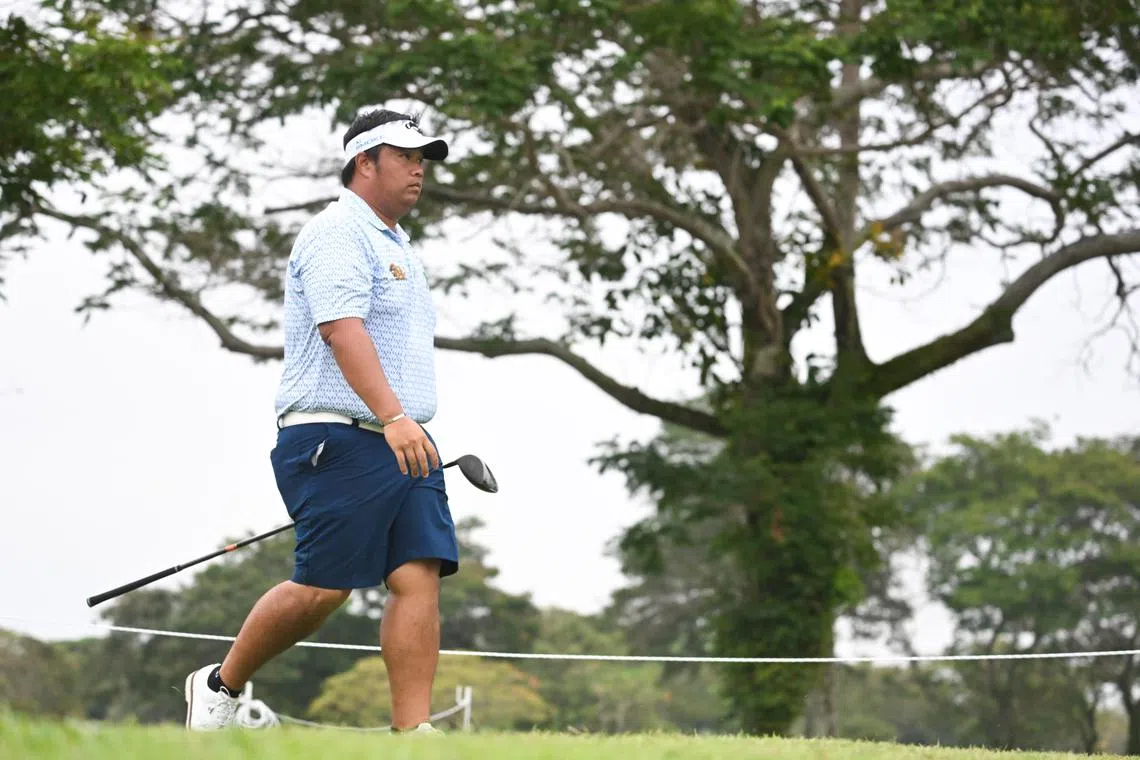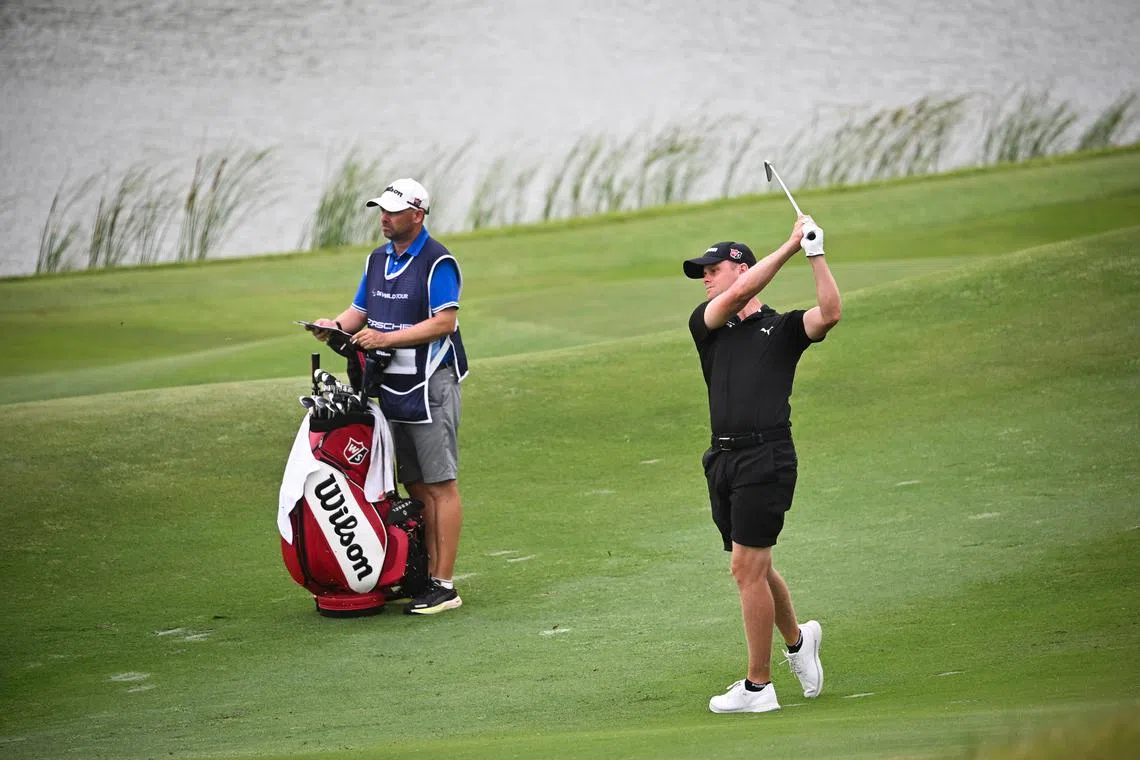Why professional golf is the loneliest place on earth
Sign up now: Get the biggest sports news in your inbox

Being the sole Thai golfer on the PGA Tour was a lonely experience for Kiradech Aphibarnrat.
ST PHOTO: LIM YAOHUI
SINGAPORE – Making it to the PGA Tour was a lifelong goal accomplished for Kiradech Aphibarnrat, but his dream soon turned into a nightmare.
After establishing himself on the professional circuit with four wins on the DP World Tour, Kiradech was rewarded in 2018 as he became the first Thai to earn PGA Tour membership.
But the next five years in the United States revealed some harsh realities of professional golf, as Kiradech was faced with soul-crushing loneliness that nearly drove him to quit the sport.
He was the sole Thai player on the PGA Tour and while some of his counterparts were on the women’s LPGA Tour, their schedules rarely aligned, leaving Kiradech with few friends.
It was still bearable at the start when he had a fellow Thai Prajak Khaoprathum on his bag, but things spiralled when his caddy returned home to look after his family.
“It became a habit that I wasn’t speaking to anyone,” said Kiradech, 34, who is competing in this week’s Porsche Singapore Classic.
“I would go out, practise, play, then go back to a four-square room every week.”
To fill this void, he eventually traded his hotel room for a house on Airbnb, but he remained miserable. He would fly halfway around the world to Thailand whenever he had the chance, but the feeling of loneliness always returned when he travelled back to America.
Kiradech would sometimes call home after his rounds, but the 12-hour time difference meant his friends and family were usually asleep.
It was hard to find joy even when things were going well on the course. Kiradech said: “When you’re playing good golf, you’re just sitting down on the couch by yourself, maybe have a bottle of beer, but nothing changes.
“When you have a bad week, you want to discuss it with someone, but you just can’t, you’re just by yourself. Everything you say out loud, it’s just going to come straight back to yourself.”
Listening to music and watching movies and videos on YouTube helped combat the emptiness on good days, but had minimal effect on bad days. He would occasionally get in his car and go for long drives “just to quieten everything down and go back and start working again”.
His golf consequently suffered. From a career-high of 29th in the world rankings in 2018, Kiradech dropped out of the top 500 in 2021 before losing his PGA Tour card that same year.
Now world No. 441, he said: “It’s a sport that you have to love, you have to enjoy. But as soon as I had no happiness, I’m looking at the bad side of it.”
The feeling of isolation is amplified on bad weeks because not many can relate to the struggles of a professional golfer.
“The reason why most of us have made it out here to the top level is because we’re wired differently,” said Belgium’s Nicolas Colsaerts, a three-time winner on the DP World Tour.
A player’s frustration is sometimes apparent on the course, but does not reveal the full extent of the emotions brewing beneath the surface. It is easy to get sucked into an endless cycle of self-criticism and worry.

It can be difficult to stay positive when you are not playing well, says Belgian golfer Nicolas Colsaerts.
ST PHOTO: LIM YAOHUI
Colsaerts, 41, said: “Just because you’re playing badly, it doesn’t mean the next week isn’t going to be a good one, but it’s difficult (to remember that) when you don’t play well.
“You start to think, ‘Will I miss another cut? Or will I miss another putt? Or will I miss another green? Or will I hit another shit shot?’
“So the negative thinking is pretty toxic not only for yourself but also for your environment.”
German Hurly Long knows the feeling all too well after a poor 2023 in which he missed 11 cuts in 24 events.
The 28-year-old said: “When it’s going badly, it can feel lonely out there and it’s funny because golf is such a mental game.
“It can drag you down and you disassociate from other people sometimes.
“You’re constantly trying to figure out and grind. And the more and more I struggled, the worse I felt.”

German Hurly Long struggled in 2023, missing 11 cuts in 24 events.
ST PHOTO: LIM YAOHUI
While experience has made Colsaerts less self-deprecating, grappling with a loss of identity has added to the feeling of loneliness for the father of two children aged six and three.
In the early part of his career, Colsaerts, who turned professional in 2000, had no qualms about spending months away from home, but getting married and starting a family has changed that.
He said: “There are nights and evenings when you look at the ceiling and you think, ‘Is it normal I’m here? Is it normal that I’m away 25, 30 weeks a year? Is it normal that I’m not at home? Am I a golfer? Am I a husband? Am I a father?’
“The balance is actually a tricky thing to get right and then mixed up with that is the way you play. When you play good, everything is fine. But when you play bad, you look at the ceiling a bit more.”



